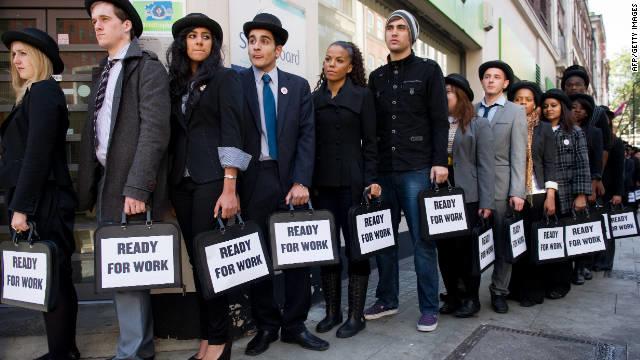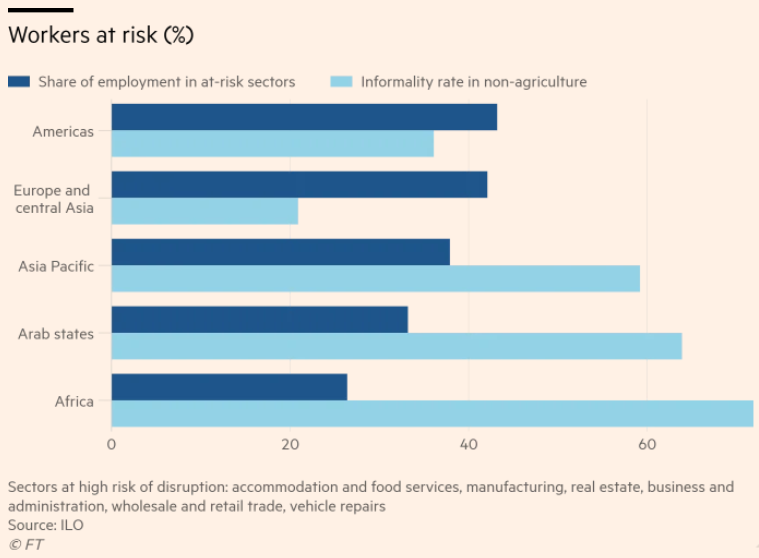Facing Catastrophe: Loss Of Working Hours To Equal 195m Full-Time Jobs According To UN Agency
Worldwide working hours will be cut by nearly 7% in the second quarter of 2020 due to the coronavirus pandemic, according to a Tuesday statement by the UN’s International Labor Organization. The loss will be equivalent to 195m full-time workers.
Nearly two-fifths of the 3.3 billion global workforce – some 1.25bn workers, are employed in hard-hit sectors, from food services to manufacturing, to real estate and accommodation. According to the report, over 80% of the global workforce live in countries subject to either partial or full lockdowns.
“Workers and businesses are facing catastrophe, in both developed and developing economies,” according to ILO director-general Guy Ryder. “It will hit the most vulnerable the hardest.“
According to the Financial Times, the sheer scale and speed of job losses due to coronavirus has taken world leaders by surprise – after nearly 10 million people in the US filed initial jobless claims during the last two weeks in March. The ILO has warned that the pandemic could result in 25 million lost jobs in 2020 – more than those lost in the 2008 financial crisis.
Many economists expect the US unemployment rate too quickly rise above 10%, with similar results to follow in Europe – which has provided a government wage subsidy to many workers which is designed to limit long-term unemployment.
Mr Ryder said it now seemed likely that more than 30m jobs were lost in the first quarter alone, and the ILO now expected a much more severe short-term impact, using more timely data from business surveys and Google search trends to illustrate what it called “the dire reality of the current labour market situation”. –FT
According to the ILO, the number of working hours globally will decline by 6.7% in Q2 of 2020 vs. the prior quarter – which reflects both layoffs and other temporary reductions in working hours. The equivalent would be 195m full-time jobs based on a 40-hour work week. They came to this conclusion using the historical relationship between working hours and a survey of business conditions among purchasing managers which is published on a monthly basis in various countries.
That said, the surveys may or may not be a reliable guide, as they show most businesses expecting conditions to worsen, but provide no indication of how severe they expect the downturn to be, or how long it’s likely to last. Still, it’s the most timely international data available, as only a handful of nations publish up-to-date administrative data on claims for wage subsidies and benefits.
The sectors most exposed to big falls in output are labour-intensive and employ millions of often low-paid, low-skilled workers who will feel the effects especially badly, the ILO said. They account for the highest proportion of employment in the Americas, Europe and central Asia.
But the ILO also warned that the virus is now spreading to countries where a high proportion of the workforce had no access to social protection; excluding agriculture, more than 70 per cent of workers are in the informal sector in Africa and 90 per cent in India. –FT
A full-year forecast was not provided by the ILO, as it said that the overall unemployment picture will depend on policies adopted by countries to boost labor demand as the economy begins to recover. It suggests the need for cash payments and the transfers of basic goods to the most impacted around the world.
“We are going to be tested ever more strongly as the pandemic extends its reach into the developing world,” said Ryder.
Tyler Durden
Tue, 04/07/2020 – 14:50


